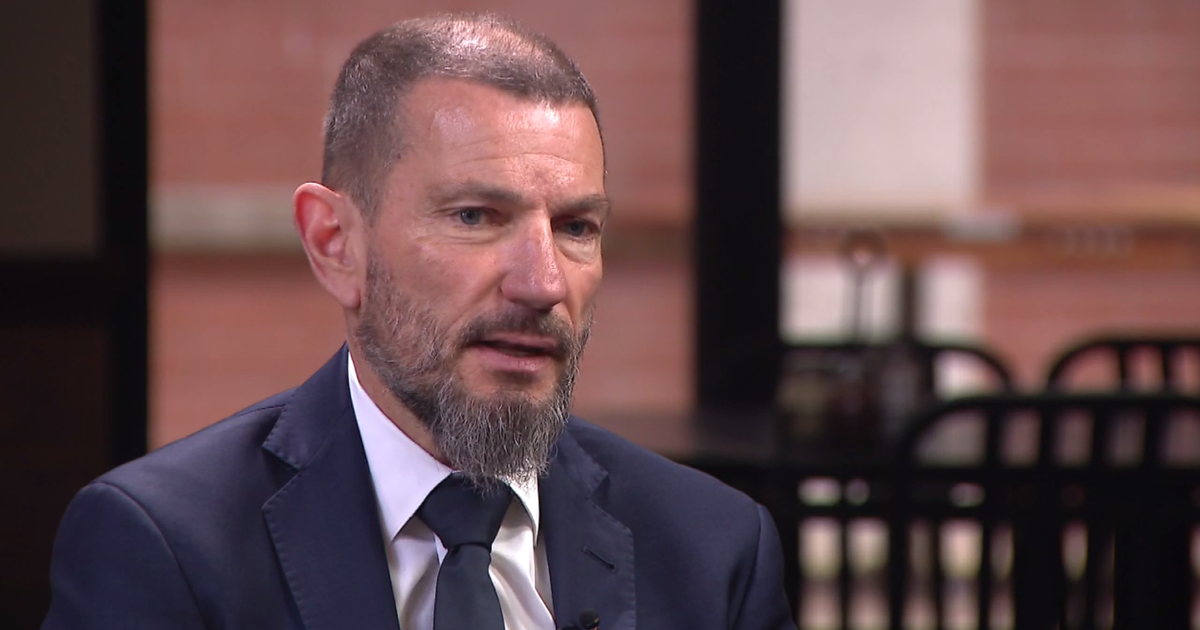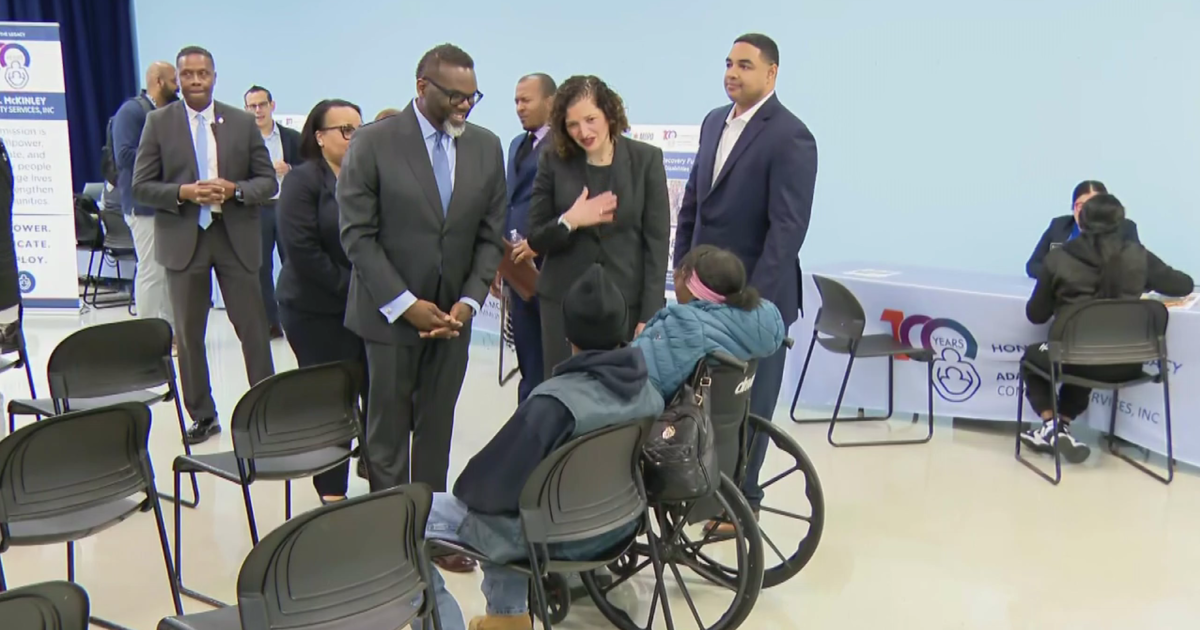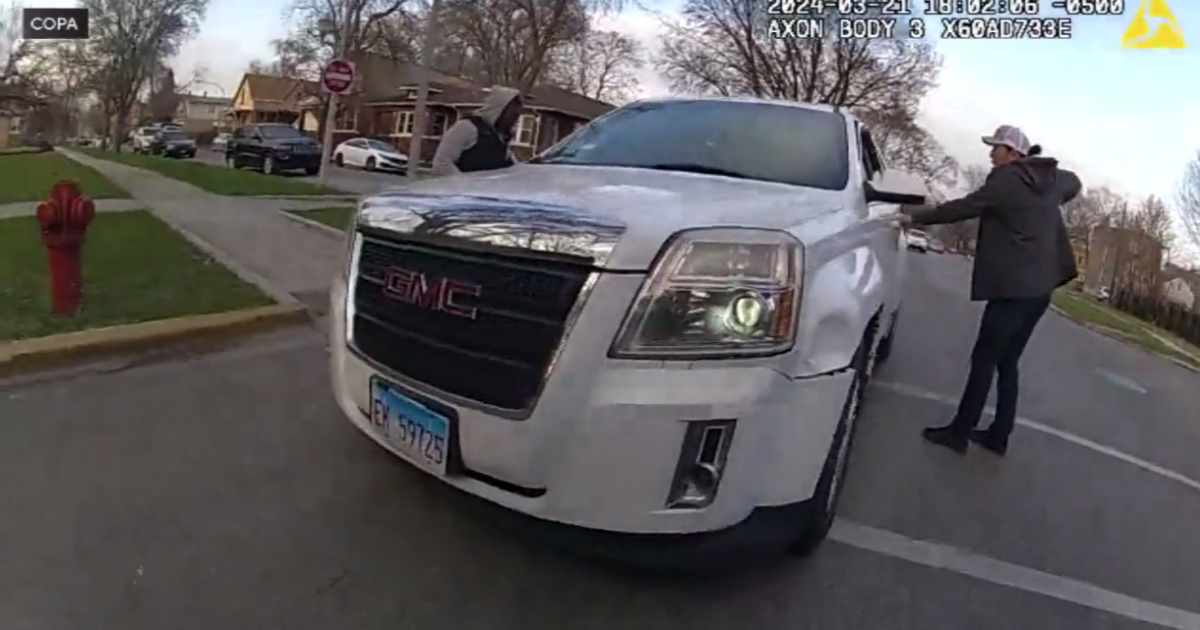Chicago Teachers' Strike Is 7th Of Past 40 Years
CHICAGO (CBS) -- The latest Chicago Public Schools teachers' strike is the city's first such strike in seven years, and the seventh in the past 40.
Chicago Teachers Union delegates voted to go ahead with a strike effective at midnight Wednesday night, CTU President Jesse Sharkey announced.
A 2012 strike early in Mayor Rahm Emanuel's time in office kept students out of class for seven days. Many earlier strikes lasted considerably longer – with the record being 19 days back in the fall of 1987.
On Sept. 10, 2012, the Chicago Teachers Union called for a walkout to begin after locking horns with Mayor Emanuel and Chicago Public Schools Chief Executive Officer Jean-Claude Brizard. They were unable to reach consensus about a new teacher evaluation system that was set up to hold teachers accountable for poor test scores, and a policy on recalling teachers who are laid off when a school closes.
Thousands of teachers and their supporters flooded downtown streets the day the strike began.
"This is about veteran teachers, that have the right to a job, to have a job, instead of all the younger teachers that are being hired, and coming into CPS, and leaving us out, and basically making us destitute," teacher Sharon Scott told CBS 2's Brad Edwards.
Emanuel – who had already established a tense relationship with CTU President Karen Lewis that included reports of curse words – called the union's walkout a "strike by choice."
The mayor said CPS negotiators had been available at any time to resume contract talks, and had asked the union to postpone a strike. He insisted the two sides had reached an agreement on financial issues, leaving only teacher evaluations and teacher retention issues to negotiate.
"All that makes it a strike by choice, because they are not financial issues," Emanuel said. "This is totally unnecessary, it's avoidable, and our kids do not deserve this."
The strike went on for seven school days. Lewis gained superstar status for standing up to what strikers called "corporate educators" – and some called for her to run for mayor against Emanuel, though she never did. Teachers found support from other municipal unions such as the Fraternal Order of Police, as well as from around the country.
"The public sector workers – all working-class people in this country are getting hammered, and this is the first aggressive, well-prepared fight-back we've seen in years in this country, and it's likely to be successful," Sherrie Wolf of Brooklyn told CBS 2's Dorothy Tucker at a rally on Sept. 15, 2012.
But some said the strike seemed to amount to a power struggle between the city and the union, and in particular between Emanuel and Lewis.
In a "Perspective" during the strike, CBS 2's Walter Jacobson said: "If I had a sign, what I would say is 'Hey, Hey whattya say, give our kids a break today,' or 'Why must you fight to do what's right?' You big bananas of the public schools -- Karen Lewis and Rahm Emanuel – insulting each other. And the teachers in the streets waving, and whistling, and having a blast; two days off to play around.
"Never mind the children; there's a game in town. The Great Chicago Challenge: for Lewis to be tougher than Rahm, and Rahm – of course – to be tougher than Lewis," Jacobson continued. "The problem is what they're doing (and for more than a year now have been doing) is not about the children. It's about power, and politics, and money."
Meanwhile, Bill Wilson, president of the conservative think tank Americans for Limited Government, went so far as to call on the mayor "should move to simply hire new teachers if the union refuses to return to work within a few days" in a Forbes column.
The union finally voted to end the strike on Sept. 18, and classes resumed the following day. Brizard was out as CPS CEO the following month.
The city's longest teachers' strike came 25 years earlier – beginning on Sept. 8, 1987 and going on for 19 school days. As a Chicago Tribune article recalled, the CTU – then led by President Jacqueline Vaughn – had called for a 15 percent pay raise, while the Board of Education had proposed cutting three days from the school calendar in what amounted to a cut in pay.
The union insisted the board had the money for a pay raise.
The board wanted teachers go back to work without a new contract until the Illinois State Legislature met the following month. The 1987 strike predated mayoral control of schools and thus, Mayor Harold Washington was not directly involved in negotiations. But he urged the same as the board.
It reached the point where students and parents began protesting and demanding that the schools reopen. In early October, uniformed Lane Tech High School football players blocked Loop traffic chanting, "We want school!"
"Chicago Teachers Union and other employee groups can no longer be permitted to hold the children of this city as hostages," CPS Supt. Manford Byrd said at the time.
Finally, a weekend settlement brought students back to class, though with plenty of damage done when it came to rancor. Teachers ultimately won an 8 percent pay raise over two years along with more sick days and health coverage, the Tribune reported.
Teachers' strikes of varying lengths were held every few years for nearly two decades before 1987. Teachers walked out for two days in 1985, and 10 days in 1984, over pay issues.
In October 1983, teachers went on strike for 15 school days, also over demands for a pay raise. The Board of Education at the time insisted that a pay hike could not be enacted without a cut in school programs and said no raise would be coming if the union didn't help pay for it, CBS 2's Phil Ponce reported at the time.
"There comes a point where you can see that they want a strike, under the misapprehension that they're going to save money. So the strike is because the school board feels that they'll save money, and we think that's contemptible," then-CTU President Robert Healey said at the time.
The strike was settled with a one-year deal that involved a 5 percent raise and a 2.5-percent bonus, the Tribune reported.
Teachers also walked off the job for 10 days in January and February 1980. The education website Substance News recalled that teachers had gone without a paycheck since Christmas 1979 amid a school financial crisis. The CTU said the Board of Education was set to use teachers' pension money to bail itself out of the financial crisis, a plan to which the union strongly objected.
On Feb. 4, 1980, a court order demanded that teachers returned to school. But then-CPS Supt. Angeline Caruso ordered the schools closed after they had been open during the work stoppage up to that point – fearing teachers would defy the court order and stay out anyway and not wishing to take a chance and find out what would the teachers' union would do.
Caruso said she would open elementary schools for the school breakfast and lunch program, but the lunchroom workers' union refused to prepare those meals, CBS 2's Phil Walters reported at the time.
The 1980 strike ended with a deal for a 6 percent pay raise the first year and 3 percent in the second, Substance News reported.
There was also an 11-day strike in 1975 and a 12-day strike in 1973 that each ended with deals for class size reduction and a pay raise, Substance News reported. The 1975 strike also resulted in maternity benefits improvements and paid dental insurance, while the 1973 strike resulted in supply funds for all teachers and a change to the length of the school year, the publication reported.
A four-day strike was also called in 1971, and a two-day strike in 1969, both of which also resulted in pay raises and other benefits.



